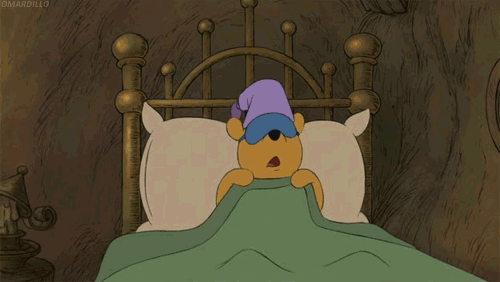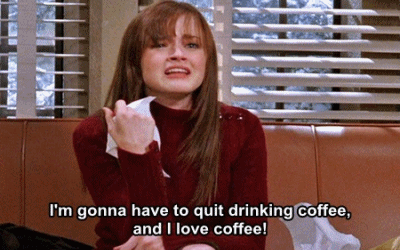We’ve all heard coffee myths at one point or another, but to be honest, most of them aren’t true. Coffee won’t stunt your growth, it won’t cure your hangover, and it won’t cause cancer. However, many people still disagree over what time you should stop drinking coffee in order for it not to disrupt your sleep. So for all you caffeine addicts out there, here are the facts.

GIF courtesy of giphy.com
There have been many sleep studies done where subjects consume caffeine throughout various parts of the day and then are monitored to see how it affects their sleep cycle. This study proves that drinking a cup zero, three, and six hours before bedtime disrupted the sleep cycle of the subjects even if just by an hour. This disruption may go unnoticed to you, but it’s proven that caffeine has negative effects on your sleep patterns.

Photo by Asia Coladner
Most sources will tell you that caffeine flushes out of your system somewhere between 4-6 hours after you drink it. That means that technically you could have a coffee mid-afternoon and you should be good to go by the time you’re ready to sleep. That being said, it’s all relative. It depends on your body, your habits, and your sleep schedule. Somebody might tell you never to have coffee after 4 p.m. but if you go to bed at two in the morning than it probably won’t matter anyway.

Gif courtesy of giphy.com
Everybody’s body functions slightly differently, so caffeine might exit one person’s system faster than another’s. Also, consider how much caffeine you are actually drinking a day. One cup a day is way different than three. If you’re about to move onto your third coffee and you’re wondering if it’s too late, you probably just shouldn’t drink it because you’ve already had too much caffeine.
This Daily Mail article found that caffeine “interrupts the flow of melatonin – the chemical that actually sends us to sleep.” After a study where subjects were given caffeine pills equivalent to two or three cups of coffee, experts suggested not to consume caffeine after 5 p.m. But again, it all depends on your body.

Gif courtesy of yourtango.com
To stay on the safe side, it is recommended to stop drinking coffee about six hours before bed, but that doesn’t mean it will necessarily all be out of your system. If you think coffee is affecting your sleep it’s probably best to change your afternoon cup to a morning cup, but there is no guarantee that it still won’t interfere with your sleep.


